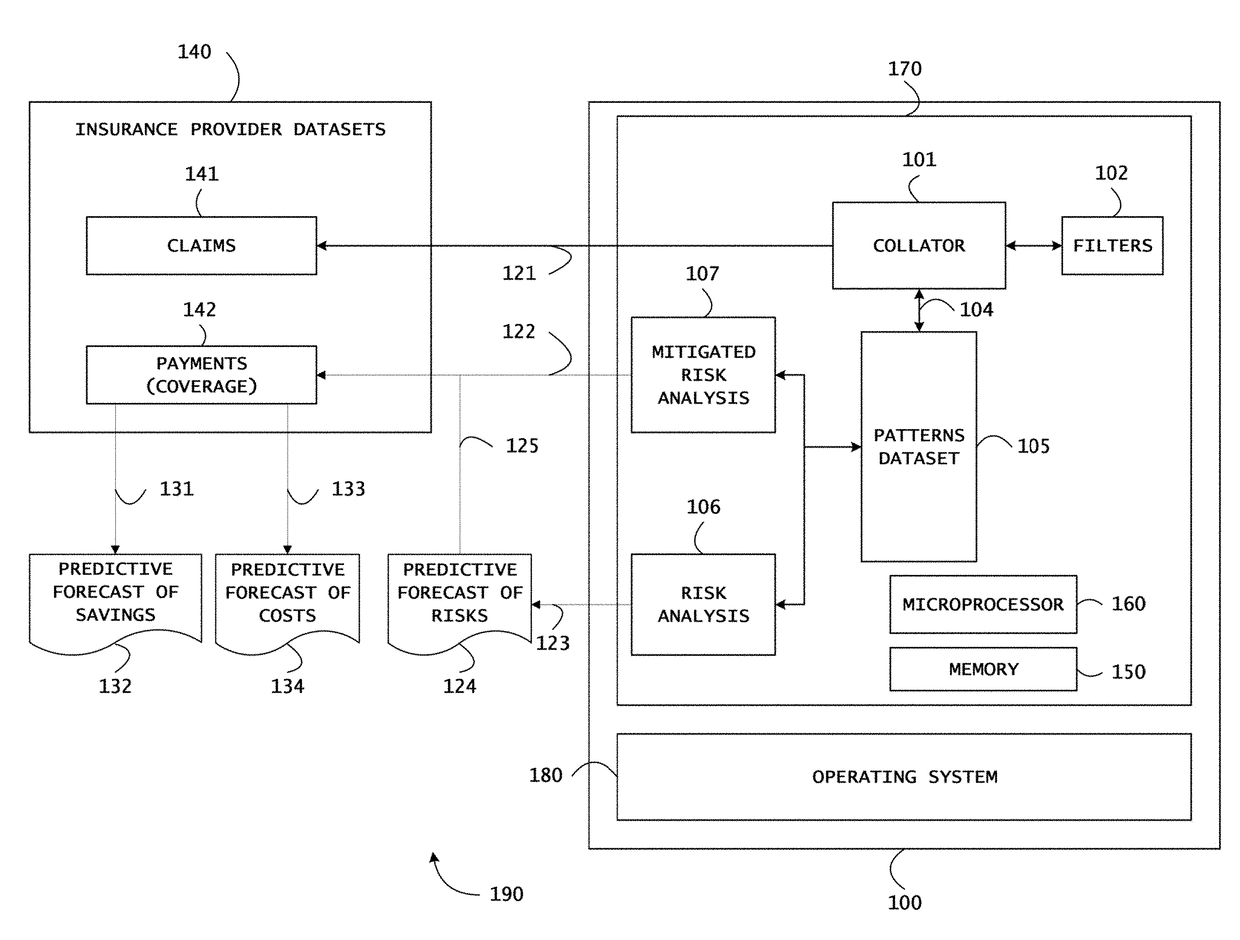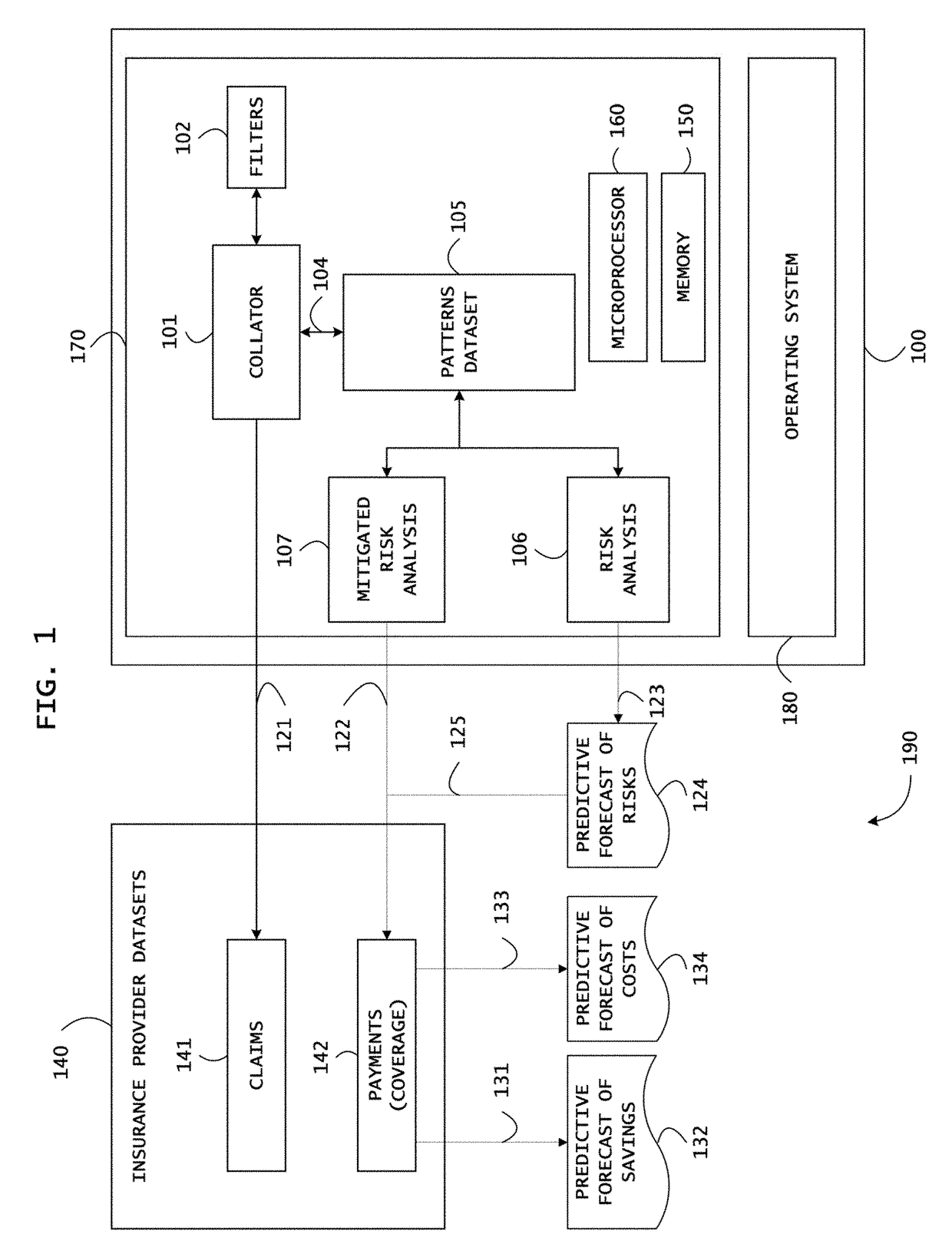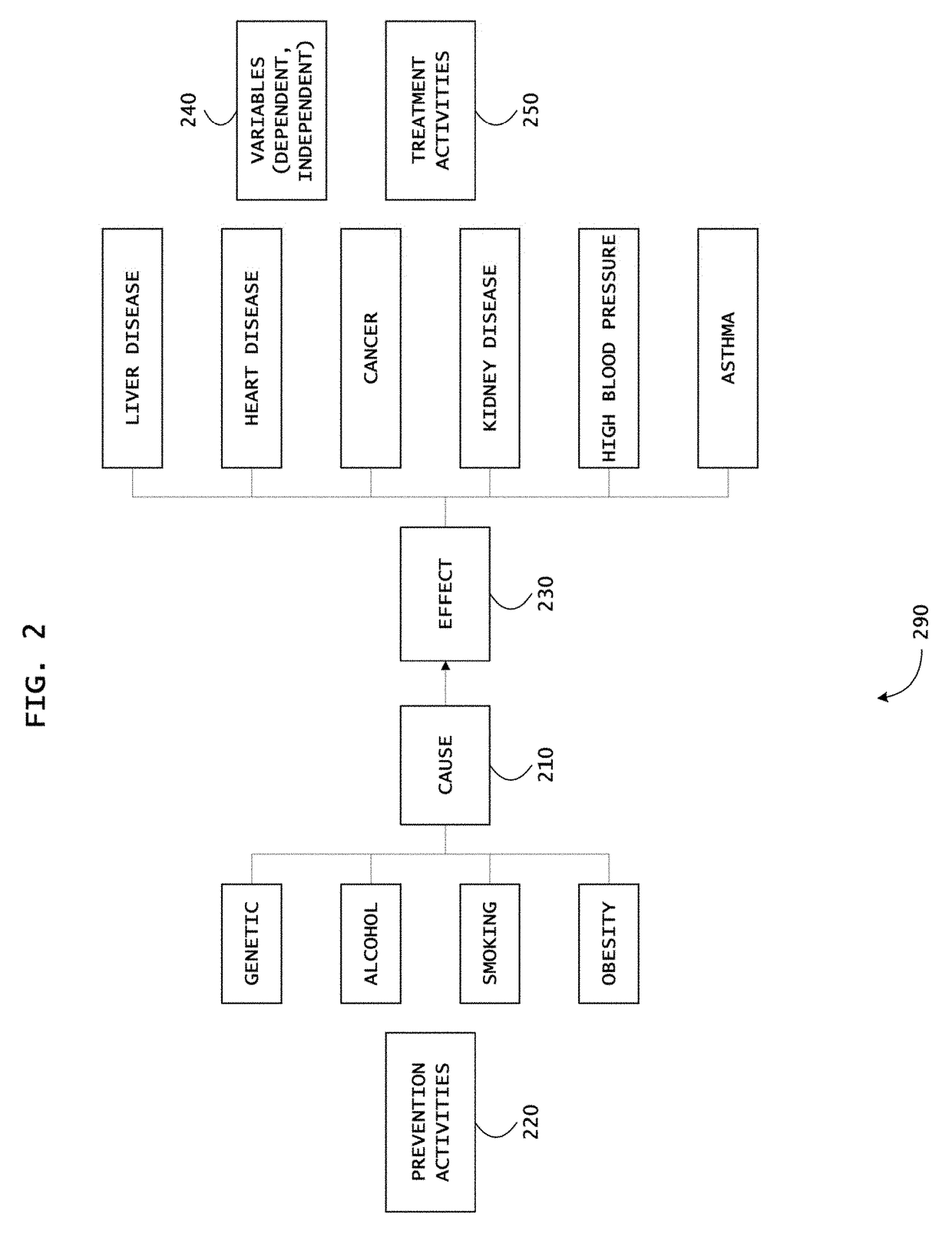System and method for evidence based differential analysis and incentives based healthcare policy
a differential analysis and incentive-based healthcare technology, applied in the field of health insurance, can solve the problems of rising insurance premiums and out-of-pocket expenses for healthcare, alarming projections of insurance companies based on lifestyle trends and emerging patterns of diseases, and a serious challenge to the industry
- Summary
- Abstract
- Description
- Claims
- Application Information
AI Technical Summary
Problems solved by technology
Method used
Image
Examples
use case examples
[0142]The following are examples that illustrate a real world application of the exemplary embodiments of the analytics system as a web-based service and benefit to society. The current aggregate health profile of the individual may be processed by the regression model to predict future illness conditions and estimate anticipated expenses.[0143]a) Hispanic male, aged 62, with BMI of 36 has a history of type 2 diabetes from the age of 35. The individual is on medications for high blood pressure. The family history indicates heart diseases with related deaths. The social history indicates alcoholism and low level of activities of daily living. The blood tests indicate high cholesterol and vital signs include high blood pressure. The predicted future illness conditions may include a stroke between the ages of 60-70 requiring a pace maker, home health services, and a kidney failure between ages 70-80 requiring dialysis. Diabetes may increase the likelihood of expenses due to inpatient (...
example implementations
of Predictive Analytics
[0207]FIG. 9A is a graphical illustration of the approach to estimate lifetime out-of-pocket expenses to an individual with an unhealthy BMI, and associated direct costs to the insurer.
[0208]Referring to FIG. 9A, at block 901 the current bio-markers for the individual with an unhealthy BMI (e.g., based on a body mass indicator included in associated healthcare data stored in the memory 150) are established at age A. At block 902, an illness condition A (903) may be predicted for the individual at an age B based on available healthcare data. At block 904, the direct cost to the insurer may be predicted using the methods and systems discussed herein, such as the models discussed above, as performed by the microprocessor 160. At block 905, the out-of-pocket expenses for illness condition A may be predicted. At block 906, availability of funds in the HIRA account for the individual based on past BMI history may be projected. Continuing over age, at blocks 907 thro...
PUM
 Login to View More
Login to View More Abstract
Description
Claims
Application Information
 Login to View More
Login to View More - R&D
- Intellectual Property
- Life Sciences
- Materials
- Tech Scout
- Unparalleled Data Quality
- Higher Quality Content
- 60% Fewer Hallucinations
Browse by: Latest US Patents, China's latest patents, Technical Efficacy Thesaurus, Application Domain, Technology Topic, Popular Technical Reports.
© 2025 PatSnap. All rights reserved.Legal|Privacy policy|Modern Slavery Act Transparency Statement|Sitemap|About US| Contact US: help@patsnap.com



